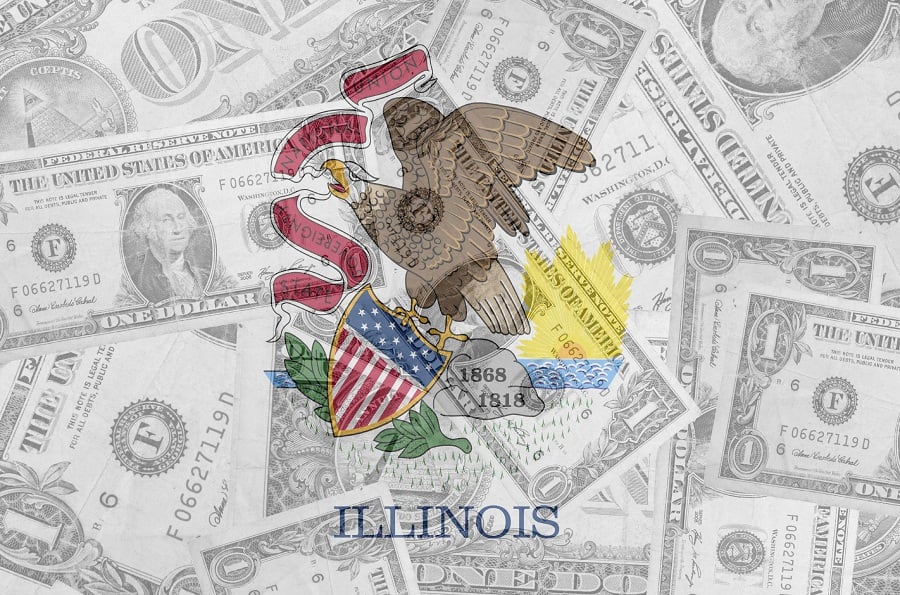Illinois is well on its way to establishing a retirement savings program for employees at small businesses, raising discussion on whether such a plan can coexist with the small-plan adviser market.
Governor Pat Quinn signed the Illinois Secure Choice Savings Plan legislation into law on
Sunday, Jan. 4. Starting on June 1, 2017, businesses that have been running for at least two years and have a minimum of 25 employees will need to offer an individual retirement savings option. Though those employers can offer their solutions, they can also participate in the Secure Choice program. (Go
here to read the law's language.)
As part of the program, employers will have to establish a payroll deposit retirement savings arrangement to permit workers to participate in Secure Choice, a payroll deduction individual retirement account. Employees will be automatically put into the program — but can opt out — at a savings rate of 3% of payroll, which they can increase. There will be an open bid to determine the manager that will oversee the funds.
Per the legislation, investment options will include a target-date fund and may include a “conservative principal protection fund,” a growth fund, a fund with a primary objective of protecting principal and providing “a stable and low-risk rate of return” and an “annuity fund.”
As for fees, annual administrative costs will not exceed 0.75% of the total balance in the trust established for the funds. The funds themselves are not considered state property and they are portable in the event workers change jobs.
The Prairie State isn't the first to pursue such a program. In fact, in recent years, 17 states
have attempted to create legislation that would widen access to retirement savings, according to the Pension Rights Center. Most notably, California governor Jerry Brown signed into law the California Secure Choice Retirement Savings Trust Act in 2012, but the board overseeing the plan is working on a feasibility study and market analysis necessary before the accounts can be created.
Meanwhile, Massachusetts has a plan for non-profit organizations that's pending before the Internal Revenue Service for final authorization.
PRIVATE VS. PUBLIC PLANS
Whether these plans can play nice alongside the adviser-driven 401(k) business remains to be seen. President Barack Obama's 2014 proposal for the myRA retirement savings accounts, which invest in a guaranteed government bond fund,
met staunch opposition from financial advisers.
“I think there's some opposition from the 401(k) industry,” said Hank Kim, executive director and counsel at the National Conference on Public Employee Retirement Systems. “They fear this is competition, yet the fact remains that the markets these state-based plans are trying to penetrate are the very markets the industry has avoided because it's not profitable to sign up small businesses.”
In fact, service providers in the retirement plan space could see a boom in business if they're selected to manage the deferrals in these state-run programs. Comerica Inc. had been
chosen in late December as the custodian of the MyRA program, for instance.
“The fact of the matter is that this can be a good new line of business for them,” said Mr. Kim. “They can open that platform to the 401(k) providers so they can get that business without having to invest in the manpower and administrative work of signing up [small businesses].”
Jim O'Shaughnessy, managing principal of Sheridan Road Financial in Northbrook, Ill., doesn't necessarily envision his firm jockeying with the state for 401(k) business.
“If it moves forward, we'll have to evaluate it along with what private sector options are available,” he said. “Our market is above that segment, so from a practical standpoint there's a big need to be served in that corner of the marketplace.”
Still, Mr. O'Shaughnessy believes a private sector solution would be a better choice to address the dearth of retirement savings among workers at small businesses.
“I'm skeptical on how well the state has managed other programs, between the 529 and the concern with the state budget,” he said. “But I'm willing to keep an open mind. If they have a solution, the hope is that it's a good solution small employers can utilize.”







